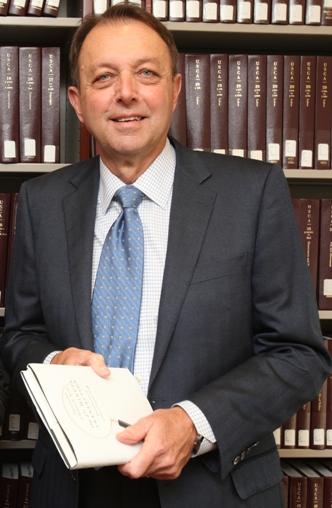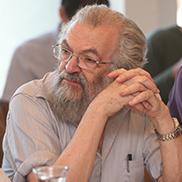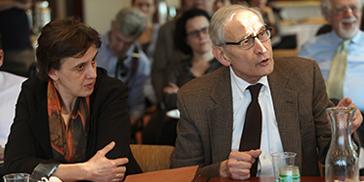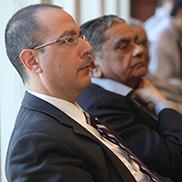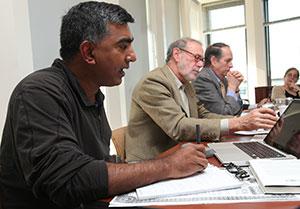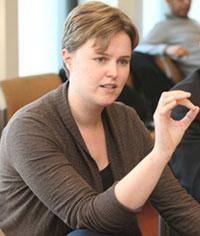Faculty Members Gather to Celebrate, Discuss New Book by Professor Robert E. Scott
New York, December 18, 2012—Dozens of Columbia Law School faculty members packed into Case Lounge recently to celebrate—and discuss— their colleague Robert E. Scott’s newest book, which casts a critical eye on the culture of law firms through the lens of boilerplate contract language.
| Professor Robert E. Scott |
Scott, the Alfred McCormack Professor of Law and a nationally recognized scholar and teacher in the fields of contracts, commercial transactions, and bankruptcy, was joined in the accompanying discussion by his co-author Mitu Gulati, a professor at Duke Law School; Ronald J. Gilson, the Marc and Eva Stern Professor of Law and Business at Columbia Law School; and Lee Buchheit, a partner at Cleary Gottlieb Steen & Hamilton LLP specializing in sovereign bonds.
The authors’ new book, The Three and a Half Minute Transaction: Boilerplate and the Limits of Contract Design, investigates the phenomenon of “sticky” boilerplate contract clauses. These clauses stick around for so long that few lawyers even remember their original meaning or purpose. Even though they’re often badly and ambiguously written, they continue to appear in contract after contract, according to research by Scott and Gulati.
| Professor Joseph Raz | Professors Katharina Pistor, left, and Charles Fried | Dean David Schizer, left, and Professor Jagdish Bhagwati |
| (from left) Mitu Gulati, Professor Ronald Gilson, Lee Buchheit, and Professor Gillian Metzger | Visiting Professor Anthea Roberts |
